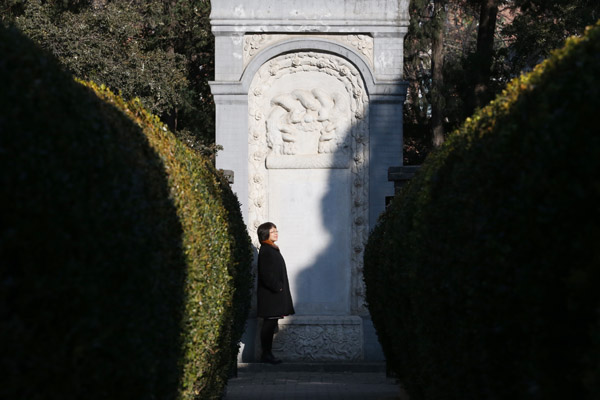How China cast its light on the west
By Zhao Xu | China Daily | Updated: 2018-02-24 15:18

"How persuasive did such publications turn out to be? It's hard to say. But they did open a window for those who were searching for answers to rejuvenate their own society, to liberate it and themselves."
Confucius China as appears in the writings of the missionaries had a profound impact on Enlightenment thinkers including Voltaire, who tapped into Chinese philosophy as one of the main sources for the ideological fermentation of the movement, Zhang says.
In fact, decades before that, the aptly dubbed China fever had proven infectious enough to take over the European courts. Zhang, who has traveled widely in Europe, talks of coming across vestiges of this fever in the form of "the Chinese pagodas".
"They are everywhere - in France, Germany and Austria. It must have been considered very chic to have such a pagoda installed in the carefully designed royal gardens of the European monarchs. Trade, which took silk and porcelain to Europe, certainly provided plenty of images to fuel the imagination, but the writings of the Jesuit missionaries helped to feed the minds that wished to think deeper."
Louis XIV (1638-1715), the Sun King of France whose love of extravagance sometimes belied him as a man of depth, may have known better. The strongman, who embraced Chinoiseries - China style with a Western twist - in the designs of the Chateau of Versailles, sent some of his empire's most talented men to China, to the court of his contemporary, the great Qing emperor Kangxi.
"Joachim Bouvet and Jean Francois Gerbillon are regarded as among the top mathematicians of 17th and 18th century France, and Louis sent them to China," says Li Xiumei, a law professor in Beijing who has made the study of the Jesuit mission in China her hobby for the past decade.
"Historians criticize him because of that. One can't help feeling that the French ruler, who gave audience to missionaries who returned from China and read about the country, must have got himself involved into a kind of rivalry with an emperor he never expected to meet.
"He wanted to impress him at any cost."
Related:
























